What happens when a group of people from different disciplines, such as chemistry, political science, philosophy, sociology, art, sculpture, film, literature and perfumery, come together to discuss scent? This month I attended The Perfumative conference organized by the Zürich University of the Arts, and it was exactly such an event. It was open to the public and the combination of talks, freestyle discussions and art installations based around scent made The Perfumative a vibrant and inspired gathering.
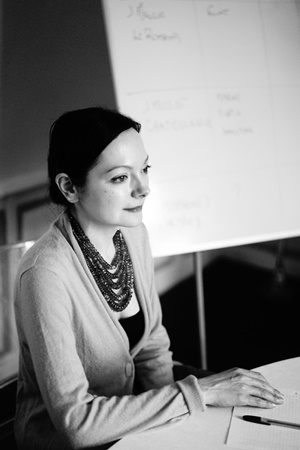

My contribution to the conference centered around scent, culture and the way perfume writing has evolved over the past years, becoming a legitimate subject comparable to similar discussions in the related fields of fashion, wine and food. You can see the range of topics covered in the program, and since the talks were recorded, I’ll share the link here once they go online. Edit: the video recording of my talk is now available at the conference website, https://perfumative.zhdk.ch/vortraege/ and scroll down.
For now, however, I wanted to share with you some of the observations inspired by the talks and discussions. Please feel free to contribute your own thoughts.
Do we need a special language to talk about perfume?
People often decry the lack of precision in our language to talk about perfume, and some propose creating a new language for scents. Why not use the language that we have? If we can describe even more intangible sensations and moods, we can certainly describe the smell of banana.
The problem is that in our society we don’t often talk about scents and hence we don’t have much practice to do so. If we don’t talk about it, we won’t develop a language (and we certainly won’t be using some artificially invented language). The only solution to the difficulty we have in describing scents is simply doing it more often.
Is perfume art, design or craft?
My reply to this took the form of a question, does it matter? Many other fields in recent times (namely, photography) struggled for recognition as art, but it didn’t prevent innovation and memorable creations.
When I look at perfume reviews, written by me and other journalists, bloggers and authors, what strikes me is how they invite the reader to consider perfume as an object of art. Not all fragrances have artistic merit (or even artistic intent), but the same goes for many other fields, including photography, fashion and painting.

Is perfume subjective?
In so far as all art is. Our experience of anything around us is shaped by our backgrounds, sensitivities and interests, but perfume certainly has some objective criteria that allow us to judge it.
A lecture by Anne Kramer touched upon this topic and also explored the aesthetics in perfumery.
Did you know that in socialist Leipzig there was a gold medal for the best perfume?
I learned this fact from a fascinating lecture by Katharina Tietze titled “Beauty for All: Perfume in the German Democratic Republic.” The socialist world was progressive in some respects.

Is Japan a perfume wilderness?
Not at all, said perfumer Satori Osawa, but the Japanese have a different and more nuanced attitude to scents. I loved her lecture.
What scents did Charles Baudelaire describe in Les Fleurs du Mal?
Musk and tobacco, rose and amber, coconut oil and tar, according to a discussion by Martin Jaeggi on scents in fin de siècle French literature. Some of the scents Baudelaire describes were inspired by his travels, the Bible, the predilection for the exotic of his epoch, but the lecture also put into perspective where such cravings originated and what continuities persist today.
There are perfumes as cool as the flesh of children,
Sweet as oboes, green as meadows
— And others are corrupt, and rich, triumphant,With power to expand into infinity,
Like amber and incense, musk, benzoin,
That sing the ecstasy of the soul and senses.
Is Instagram and social media killing the real conversation around perfume?
During some talks the growth of social media was mentioned, namely Instagram with its tendency to focus on images. Social media definitely has a tendency to decontextualize information and to fragment it. We are inundated with information, but connecting the pieces to make a larger picture is difficult. Are we in danger of losing substance in our discussions?
I remain optimistic that social media is a way to retain interesting conversations and share thoughtful observations whatever media we use. The medium shapes the way we interact, but we also have power to make it serve our needs.

What if one lacks the technical training but wants to discuss perfume?
“Don’t be afraid of being an amateur,” said one of the most prominent fragrance chemists in the industry, Philip Kraft, during the discussion, “Just jump in and join the conversation.” This is good advice.
So, being passionate and curious counts for far more than knowing which lactone was used in Guerlain Mitsouko or whether Frédéric Malle Carnal Flower contains tuberose or jasmine. Be interested, be open-minded, be ready to change your opinion as you learn more, be ready to ask questions. Above all, be ready just to smell. Bois de Jasmin’s little contribution to help you learn is our collection of articles about perfume notes and scent vocabulary.
In conclusion, I’d like to say it again–let’s talk about scents. The more we talk about them, the more we develop our capacity to describe them and the more relevance they have for us in our daily life. Paying attention to scents enhances our sensory perceptions in general, so why miss an opportunity to make our world more colorful and exciting?
Photograph 1 by Anna Kozlova. Photograph 5 smelling Philip Kraft’s art installation, taken by Dr. Kraft. The rest by Bois de Jasmin
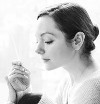









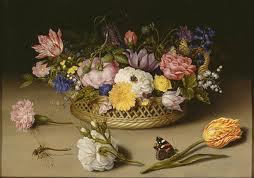
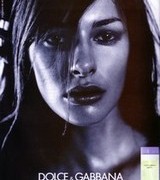
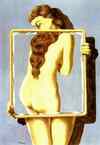
22 Comments
Sarah Colton: Thank you so much for this thoughtful and substantive piece. Although I rarely comment on your posts, I read them with great interest and thankfulness for your voice and energy. Cheers, Sarah November 15, 2018 at 9:12am
Victoria: Thank you for your kind words, Sarah! This means very much to me. November 15, 2018 at 1:20pm
Klaas: Hey Victoria, that must have been a great experience! And how awesome to be invited to lecture. Your comment about creating a new vocabulary to describe scent made me smile. We’ve had similar discussions in Holland about dance and ballet. Dance critics sometimes struggle to find adequate words to describe movements or choreography (in any dance style). They also wondered if a new jargon was needed. I did not agree; why invent new words when we have a very complete and rich language already? We just need to be creative and find everyday words that can illustrate dance. How will people understand what you’re talking about if you have to hide behind obscure jargon? The same goes for perfumery, I’m sure!
I also agree that it doesn’t matter if perfumery is seen as an art or not. Some scents will have artistic merits, intended or not. Just like a press photo taken for news value can all of a sudden strike us as artistic (taken of the bat in the heat of a conflict, sometimes in a split second. No artistic intentions at all and then boom! Perfect composition, the drama captured in one striking image….The photo will speak to whoever sees it).
So yeah, I think Brin de Reglisse is a work of art. No matter what other people make of it 😉 November 15, 2018 at 9:25am
Victoria: That was my sentiment exactly! Why layer more incomprehensible vocabulary when we already have enough jargon that needs to be explained–and when we have a rich language capable of describing all sorts of sensations and impressions?
Brin de Reglisse is a work of art. For me, at least. 🙂 November 15, 2018 at 1:22pm
Billy: I simply love your column. As a man who adores wearing perfume, and in particular classic women’s scents of citrus/floral perfumes, I appreciate your insight and positive messaging about the science, culture, and art of wearing different scents in today’s world. I do wish more people (men and women) would embrace the art of scent and how it changes your personal space (both for yourself and those you come into contact with – whether casually or intimately). Thank you so much. November 15, 2018 at 9:28am
Victoria: Thank you very much, Billy! I can’t agree more with you on the way fragrances add to the experiences in general. I’d go even further and say that even if one doesn’t wear perfume on regular basis, just enough the scents, learning about them and learning how to use our sense of smell to its full potential. November 15, 2018 at 1:27pm
Gabriela: You have great mind Victoria, thank you for this article. I remember when I studied Psychology the discussion on whether it was a science or not was endless.
Like you said, what matters is to be interested and open-minded, on all subjects. November 15, 2018 at 9:43am
Gabriela: (…) a great mind… November 15, 2018 at 9:44am
Victoria: 🙂 Great minds think alike. November 15, 2018 at 1:27pm
Victoria: Being open to all sorts of possibilities does make life more interesting. November 15, 2018 at 1:27pm
Matty: Thank you for this article. Some very interesting points. November 15, 2018 at 9:54am
Victoria: Thank you, Matty. November 15, 2018 at 1:28pm
Gentiana Craciun: Thank you for this post, really thoughtful, you share valuable information … it is like opening a window to a new, big, colorful world. I appreciate a lot the idea not to be afraid to be an amateur (I am kind of scared to talk oddities), the more used, more skilled the language. And as in other domains, a piece of art can result among hundreds of pieces of craft. Not all music or dance is art. Watch me 🙂 November 15, 2018 at 10:45am
Victoria: Please don’t worry about it. Jumping into the discussion can be a little intimidating when you’re new, but that’s when you have to do it. And make observations, whatever comes to your mind. That’s how we learn in perfumery courses. That’s the only way to learn. Dr. Kraft’s observation was so valuable and important, especially since it comes from one of the top professionals in this industry. November 15, 2018 at 1:30pm
maggiecat: Your article is fascinating and I’m looking forward to learning more.
What I have found is that since I have been seriously studying perfume, I have not only begin noticing different scents more, but have also become much more adept at describing them to myself and others. Since our sense of smell is so intimately connected to our emotions, the language of emotion also serves as well in terms of descriptors, I think. November 15, 2018 at 3:09pm
José Cândido: Hey Victoria I absolutely loved this article. My only contribution is that you can see more of what is or what is not a piece of art by evaluating its cultural importance (for example I can see Chanel No.5 and Good Girl as both icons of a certain time and it is not just because they smell good).
I want to share this article into my website, is it possible? November 15, 2018 at 3:19pm
Inma: Dear Victoria,
Thank you for sharing your thoughts and experience! So interesting to me. I love the idea of deepening my sense of smell, I think it is wonderful by itself and it also helps to expand the rest of my senses. They all grow, I grow.
Also, I do agree on the importance of expressing although you (me) are not and expert, and sharing, as it is with the others that we really get to sense ourselves.
Nice weekend! November 16, 2018 at 9:21am
Severine: I like your style in the picture. Could you tell me a little bit about that necklace? November 16, 2018 at 10:03am
Figuier: What a great event, Victoria, it must have been wonderful to contribute to it! Thanks so much for distilling out those questions & topics for us – I’ll look forward to listening to some of those talks once they’re online 🙂
I’m kind of on the fence when it comes to technical jargon – obviously it can be exclusionary and pointlessly obscure, and I certainly think it makes sense to re-purpose the language we already share as non-specialists when we’re seeking to describe perfume. Maggiecat’s comment makes a great point about using the language of emotion to talk about perfume, which I think is one of the things your blog does really well.
I do also have respect and patience with the idea of ‘expert’ vocabularies (perhaps partly in resistance to the rise of anti-expert-ism in the British press), which allow a lot of ideas & context etc. to be condensed usefully into single words or short phrases. Specialist terms like ‘sillage’ or chemical terms like ‘lactones’ (and the various sub-categories thereof) are useful and evocative, and even though I’m totally ignorant about chemistry, regularly reading perfume blogs means that those terms do communicate, and have come to have meaning for me. November 17, 2018 at 6:48am
nozknoz: That sounds so interesting — are they going to publish the talks, by any chance? November 17, 2018 at 10:06pm
Aurora: I would have loved to hear your talk, you make things so accessible, I’m sure you will have met interesting people too. November 18, 2018 at 3:50am
Jessica M: I am so happy and moved to read this post. Thank you! I wish I could have been present for your discussion. We agree on so many things in this area. xo November 20, 2018 at 4:26pm